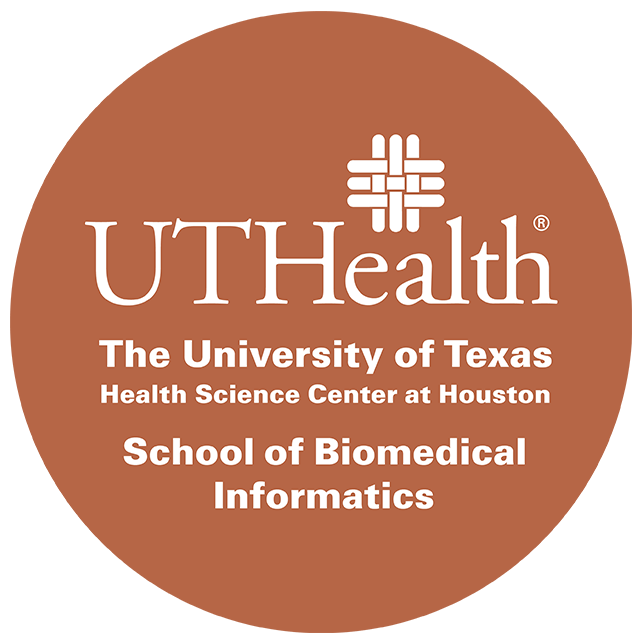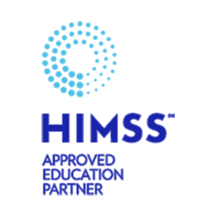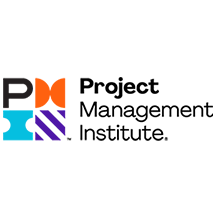



INFORMATICS CAREER OUTCOME NUMBERS
-Launch Your Career in Informatics-
Biomedical Informatics is a growing field that optimizes the use of information in health care. Employment opportunities can be found in pharmacies, hospitals, insurance companies, technology startups, medical research labs, and more. The training required will depend upon an individual’s education and experiential background. Post-baccalaureate certificates and master’s degrees are most common. PhD’s and professional doctoral degrees are for researchers and executives.
SBMI Graduate Degrees
SBMI offers graduate programs that meet your needs when launching your career in Informatics.
Admission Deadlines
| PROGRAM | FALL | SPRING | SUMMER |
| Certificate | July 1 | November 1 | March 1 |
| Master's | July 1 | November 1 | March 1 |
| PhD | Dec. 1 | July 1 | N/A |
| DHI | March 1 | Only one DHI cohort will be admitted annually. | |
We also offer aDual Degree Programs in Public Health Informaticsand aDual Degree Program MD/MS in Biomedical Informatics.
One of the best things any prospective student can do is to research before choosing any major. The best option is one with a multidisciplinary focus. Health informatics is a multidisciplinary profession in one of the most stable fields in the United States. It is a great option for students looking for an in-demand career.
Since the financial crisis of 2008, occupations with growing demand have been few and far between. One category of jobs that has seen significant growth in advertised positions is the field of医疗信息.
As with most scientific fields, biomedical informatics researchers usually need a doctoral degree in order to conduct independent research. Biomedical informatics research professionals may find job opportunities working in private sector research or education. Those desiring to work in the healthcare industry supporting clinical care or developing technology generally need a master’s or professional doctoral degree. Biomedical informatics professionals are in high demand due to their ability to analyze data, solve problems, and design solutions.
Popular Careers Held By SBMI Alumni
Erika Cavazos-Juarez, MS
2018 MS Alumna
Director of Quality Management
Erika works at Laredo Medical Center; a private 326-bed acute care hospital in Laredo, TX. In her role as Director of Quality Management, she enforces compliance with government regulations and organizational policies. She also identifies and educates hospital leaders on current accreditation standards to promote compliance with regulatory requirements. Additionally, she provides oversight of the Primary Stroke Program and Chest Pain Center accreditations.
Sahiti Myneni, PhD, MSE
2013 PhD Alumna
Associate Professor
Dr. Myneni joined her alma mater in early 2014 as an assistant professor and she was promoted to associate professor in September of 2019. In her role, she conducts research on development and evaluation of mobile and connected health technologies to improve patient engagement and optimize self-management of health. Additionally, she teaches and advises SBMI students.

Nnaemeka Okafor, MD, MS
2011 MS Alumnus
Vice President, Chief Analytics and Informatics Officer
Dr. Okafor works for Memorial Hermann Health System and is responsible for enterprise informatics and the expansion and utilization of virtual health and business intelligence, analytics, and data science for the health system. His role also requires that he develop informatics resources and serve as a trusted problem-solving liaison for clinicians, health system executives, Information Technology (IT) staff, and vendors.

Zhiguo (Stanley) Yu, PhD
2017 PhD Alumnus
Data Scientist at Microsoft AI and Research
Stanley works for Microsoft Cortana. He serves as the overall science lead in Cortana Data, Metrics and Measurement Platform team. He is also leading a data analysis team that focuses on language understanding model development and improvement. His research interests are to detect and understand the ambiguity behind human language.

How Much Do UT Masters Graduates Earn?
How Much Do They Owe For Student Loans?
Average Earnings
- 1st year - $77,133
- 5th year - $94,231
- 10th year - $118,034
金额:24739美元
Master's in Biomedical Informatics
Biomedical Informatics
How Much Do UT PhD Graduates Earn?
How Much Do They Owe For Student Loans?
Average Earnings
- 1st year - $99,420
- 5th year - $151,064
Amount: $31,535
PhD in Biomedical Informatics
Average Job Earnings Comparison for Different
UT Graduate Degree Types - Master's Graduate Degree
Minimum SalaryMaximum Salary
Source: Indeed.com -Medical Informatic Salaries
Average Job Earnings Comparison for Different
UT Graduate Degree Types - PhD Graduate Degree
Minimum SalaryMaximum Salary
Source: Discover Data @UTSEEK – Masters Degree and PhD Degree
Average Salary for Informatics Careers - Nationwide
| Average Salary | Minimum Salary | Maximum Salary |
|
|---|---|---|---|
| 印第安纳波利斯 | $71,358 | $51,000 | $91,717 |
| Atlanta | $71,846 | $58,580 | $85,113 |
| Houston | $74,038 | $54,938 | $99,702 |
| Chicago | $77,856 | $56,010 | $99,702 |
| New York | 90,342 | $52,941 | $127,743 |
Sources:
Payscale.com -Informatics SalaryandHealth Informatics Salary
Please note: Salary information comes from 25,770 data points collected directly from employees, users, and past and present job advertisements on Indeed in the past 36 months. All salary figures are approximations based upon third party submissions to Payscale and Indeed. These figures are given to the Payscale and Indeed users for the purpose of generalized comparison only. Minimum wage may differ by jurisdiction and you should consult the employer for actual salary figures.
How Work Experience Impacts Income - Nationwide
Percentage of RespondentsAverage Salary
Source: PayScale.com -MS Informatics Salary
Popular Career Types in Health and Medical Informatics
by Position - Nationwide
Number of Persons Reported for Each PositionAverage Salary
Source:GlassDoor.comandIndeed.comMedical Informatics Salaries
Updated: 01/2022
Biomedical Informatics Education Data
by Degree Type - Nationwide
| Degree Required |
Field of Study | Median Salary (2016) |
Median Salary (2019) |
|
|---|---|---|---|---|
| Information Technology, IT Trainers |
Masters | Information Sciences, Biomedical Informatics |
$60,734* | $62,004* |
| Project Managers | Masters | Biomedical Informatics | $72,175* | $87,658* |
| Chief Nursing Informatics Office (CNIO) |
Bachelors, Masters of Nursing Preferred |
Nursing, Biomedical Informatics |
$124,616* | $128,317* |
| Chief Medical Informatics Officers (CMIO) |
Doctor of Medicine | Biomedical Informatics | $276,748* | 293939美元* |
| Research Scientists | Doctorate | Biomedical Informatics | $80,103* | $83,447* |
| Project Managment (PMP) | Certification | Project Management | $110,277 |
Source: *Biomedical Informatics: Salary and Career FactsandSalary for Certification: Project Management Professional (PMP)
Updated: 01/2022
5 Most Common Medical Informatics Job Descriptions
Informatics nurses are responsible for bridging the gap between clinicians and IT. As an informatics nurse, you will evaluate a health care facility to determine what clinical IT applications will help increase efficiency. You could be responsible for training the staff on new systems and ensuring everyone is up to date on the latest technology. Informatics nurses also facilitate communication between IT, vendors, and the staff regarding clinical IT applications. In order to become an informatics nurse, you will need at least a bachelor’s degree in nursing, but some roles might require a master’s degree. There is also a certification for informatics nurses from the American Nurses Credentialing Center that, while not required, may help you get a job in health care informatics.
Health informatics specialists have a similar role to that of an informatics nurse in a health care setting. You may be responsible for training staff and creating educational documents for systems and procedures, but you will also be responsible for troubleshooting and assisting staff when problems arise. As a health informatics specialist, you will also need to be up to date on the latest compliance and regulatory standards. Education requirements for a health informatics specialist can range depending on the position. Some require a bachelor’s and experience with technology, while others may require a master’s in biomedical informatics, health informatics, computer science or a related field.
Clinical informatics specialists work with the systems used to digitize patient records. As a clinical informatics specialist, you will be responsible for creating processes and improving procedures as well as documenting them for the staff. You will also oversee the transition of any paper documents to digital systems, and oversee the process. Education requirements for a clinical informatics specialist can range depending on the position. Some require a bachelor’s and experience with technology, while others may require a master’s in biomedical informatics, health informatics, computer science or a related field.
Clinical data analysts are responsible for closely evaluating data to help improve workflow and a health care facility’s overall clinical information systems. As a clinical data analyst, a main task may include creating the database systems for a healthcare facility. Since health IT can require handling sensitive data, as a clinical data analyst, you will be responsible for striking a balance between efficiency and federal regulatory standards. To become a clinical data analyst, you will need a bachelor’s degree in life science or social science, or a related discipline, with a master’s degree preferred. You will also want to ensure you have a solid background in technology, especially with database and general IT knowledge. Experience working in the health care industry will help your chances of employment.
Clinical informatics managers are responsible for overseeing the daily operations of the clinical information systems at a health care facility. As a clinical informatics manager, you will manage and train staff, monitor budgets, direct staff, and ensure all systems are in compliance with state, federal, and professional regulatory standards. In order to become a clinical informatics manager, you will first need to work in informatics at a lower level. Once you have gained relevant experience, you will be able to move up to clinical informatics manager.
Source: Monster.com -Health Informatics
Top Skills Cited in Job Listings
Basic Skills
- Needs Assessment/Requirement Gathering
The practice of collecting the requirements of a system from users, customers and stakeholders.
- Technical Proficiencies (Computational skills)
Approaching problems using programmatic thinking techniques such as iteration, symbolic representation, and logical operations.
- Project Management
Is to schedule, organize projects, and/or the work of others, time management skills and prioritize certain tasks.
- Communication
Reading, writing, speaking, and listening are necessary communication skills.
- Leadership
Make strategic and tactical decisions in line with an organization's mission and goals; properly allocate resources to achieve the goals. Valuable leadership skills include the ability to delegate, inspire coworkers and communicate effectively.
Advanced Skills
- Management of Information Systems
Implementation, maintenance and optimization of health information and other technical systems.
- 数据分析和Visualization (Analytical & Problem Solving Skills)
Includes skills such as ordering, comparing, contrasting, evaluating and selecting; as well as preparing visual presentations of data.
- Computer Programming (Quantitative Skills)
Involve the ability to handle data and use numerical evidence systematically.
- Data Modeling, Security and Communication
How data is connected to each other and how they are processed and stored inside a secured system.
- 机器学习和Artificial Intelligence
Subset of artificial intelligence in the field of computer science that often uses statistical techniques to give computers the ability to "learn" with data, without being explicitly programmed.
Top Skills Cited in Job Listings
- Basic Skills
Basic Skills
- Needs Assessment/Requirement Gathering
The practice of collecting the requirements of a system from users, customers and stakeholders.
- Technical Proficiencies (Computational skills)
Approaching problems using programmatic thinking techniques such as iteration, symbolic representation, and logical operations.
- Project Management
Is to schedule, organize projects, and/or the work of others, time management skills and prioritize certain tasks.
- Communication
Reading, writing, speaking, and listening are necessary communication skills.
- Leadership
Make strategic and tactical decisions in line with an organization's mission and goals; properly allocate resources to achieve the goals. Valuable leadership skills include the ability to delegate, inspire coworkers and communicate effectively.
- Needs Assessment/Requirement Gathering
- Advanced Skills
Advanced Skills
- Management of Information Systems
Implementation, maintenance and optimization of health information and other technical systems.
- 数据分析和Visualization (Analytical & Problem Solving Skills)
Includes skills such as ordering, comparing, contrasting, evaluating and selecting; as well as preparing visual presentations of data.
- Computer Programming (Quantitative Skills)
Involve the ability to handle data and use numerical evidence systematically.
- Data Modeling, Security and Communication
How data is connected to each other and how they are processed and stored inside a secured system.
- 机器学习和Artificial Intelligence
Subset of artificial intelligence in the field of computer science that often uses statistical techniques to give computers the ability to "learn" with data, without being explicitly programmed.
- Management of Information Systems
Top 5 Career Sources in the USA for Health Informatics
(Mid-Level Experience and Above)
Health Informatics Job Postings in the USA - Nationwide
Healthcare informaticsjobs now constitute the eighth largest share of health care occupation postings. This career niche is likely to continue to grow, given the trends and demands shaping the our health care industry.
Sources:ZipRecruiter.comGovernmentJobs.comIndeed.comSimplyHired.com
Updated: 01/2022





